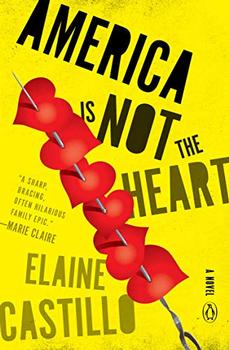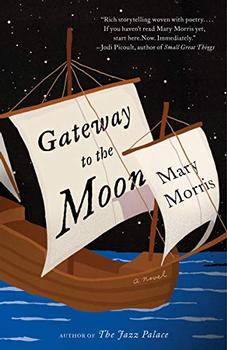Summary | Excerpt | Reading Guide | Reviews | Beyond the book | Read-Alikes | Genres & Themes | Author Bio

A stunning debut novel about an extended Sri Lankan family - a kaleidoscopic view of contemporary immigrant life, by turns darkly funny, sad, poignant, and uproariously beautiful.
From the winner of the 2009 Impress Prize for New Writers (U.K.) and finalist for the Sunday Times Short Story Award, a stunning debut novel about an extended Sri Lankan family - a kaleidoscopic view of contemporary immigrant life, by turns darkly funny, sad, poignant, and uproariously beautiful.
It's New Year's Eve 1982. At Victor and Nandini's home in southeast London, the family and their friends gather to ring in the new year. Whiskey and arrack have been poured, poppadoms are freshly fried, and baila music is on the stereo. Upstairs, the teenagers have gathered around the television to watch The Godfather again while drinking pilfered wine. Moving back and forth in time, from the 1970s to the present day, and from London to Sri Lanka and back again, we follow Victor and Nandini's children: Rohan, Gehan, and in particular dyslexic Preethi - funny, brash, and ultimately fragile. We also meet troubled Lolly and her beautiful sister Deirdre; wonderful Auntie Gertie; and terrible Kumar, whose dark deed will haunt the family.
In the end, Homesick emerges as a moving and powerful novel about Sri Lankans in England. In showcasing her characters' everyday anxieties and triumphs, Fernando effectively portrays a slice of humanity we can all - immigrants or not - identify with readily. It is this empathy that Fernando manages to elicit from her readers and that makes Homesick such a compelling, triumphant debut...continued
Full Review
(622 words)
This review is available to non-members for a limited time. For full access,
become a member today.
(Reviewed by Poornima Apte).
In Homesick, Victor, a Sri Lankan immigrant to England, views his native country's cricket team as his own. He owes allegiance to them and takes pride in their successes. Roshi Fernando uses this sport as a metaphor for her character's desire to break free of colonial ties.
 The game of cricket is defined by Merriam-Webster as "a game played with a ball and bat by two sides of usually 11 players each on a large field centering upon two wickets each defended by a batsman." Possibly an ancestor of American baseball, the sport plays somewhat similarly. One person, called the "bowler," pitches (or "delivers") a hard leather ball down a 22-yard-long strip of dirt (called the "pitch") toward the other team's batter who is protecting his ...
The game of cricket is defined by Merriam-Webster as "a game played with a ball and bat by two sides of usually 11 players each on a large field centering upon two wickets each defended by a batsman." Possibly an ancestor of American baseball, the sport plays somewhat similarly. One person, called the "bowler," pitches (or "delivers") a hard leather ball down a 22-yard-long strip of dirt (called the "pitch") toward the other team's batter who is protecting his ...
This "beyond the book" feature is available to non-members for a limited time. Join today for full access.

If you liked Homesick, try these:

by Elaine Castillo
Published 2019
With exuberance, grit, and sly tenderness, here is a family saga; an origin story; a romance; a narrative of two nations and the people who leave one home to grasp at another.

by Mary Morris
Published 2019
From award-winning novelist Mary Morris comes the remarkable story of a remote New Mexican town coming to grips with a dark history it never imagined.
There is no such thing as a moral or immoral book. Books are either well written or badly written. That is all.
Click Here to find out who said this, as well as discovering other famous literary quotes!